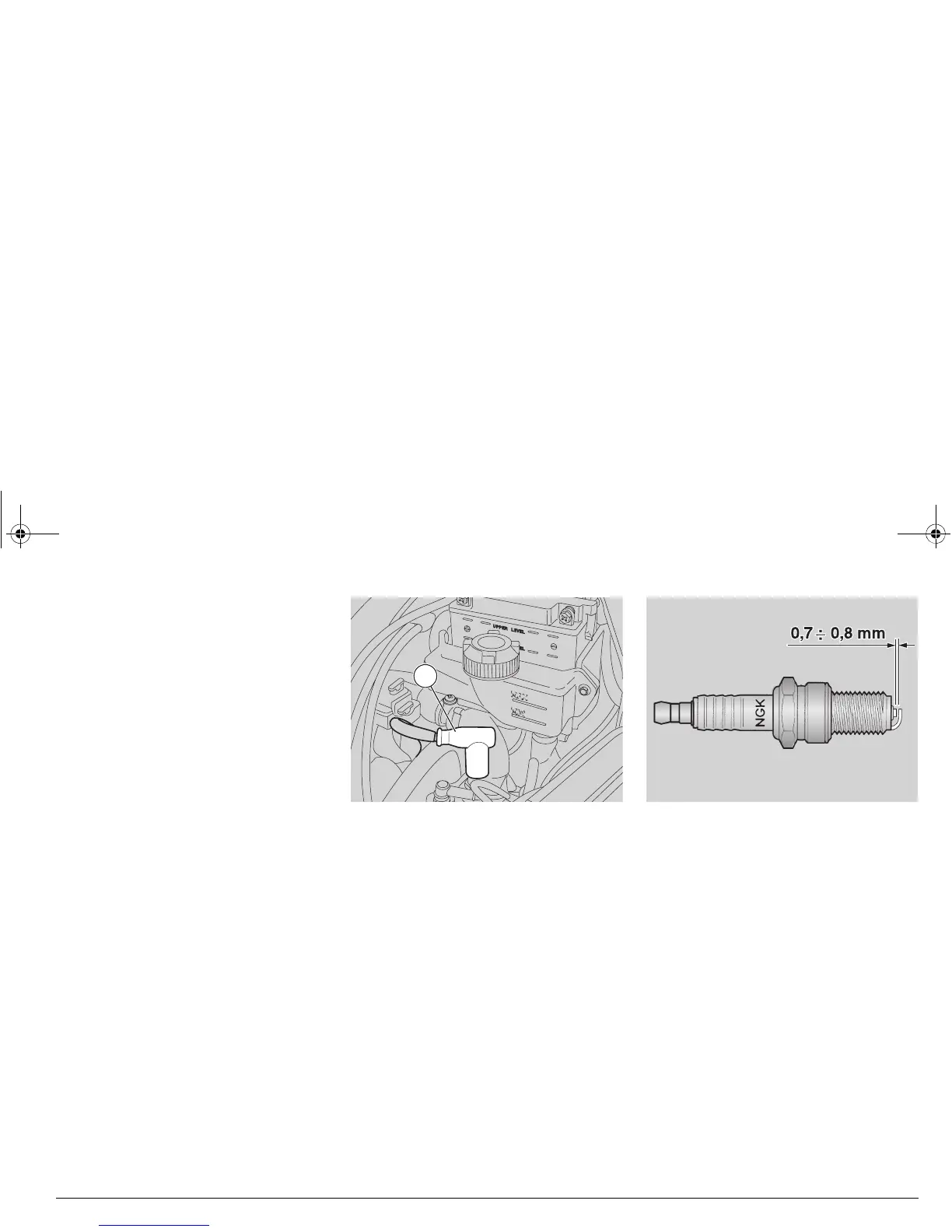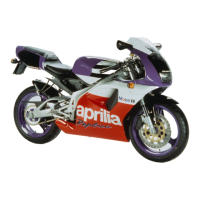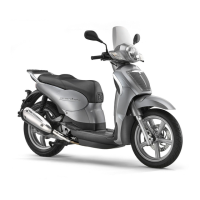63
use and maintenance RS 125
SPARK PLUGS
Carefully read page 43
(MAINTENANCE).
Check the spark plug after the first 1000
km (625 mi) and successively every 4000
km (2500 mi); change it every 8000 km
(5000 mi).
Periodically remove the spark plug and
clean it carefully, removing carbon
deposits; change it if necessary.
To reach the spark plug:
u
Lift the fuel tank, see page 57
(REMOVING THE LOWER FAIRING).
To remove and clean the spark plug:
u
Take off the spark plug cap (1).
u
Remove all the dirt from the base of the
spark plug, then unscrew it with the
spanner you will find in the tool kit and
extract it from its seat, taking care that
neither dust nor other substances enter
the cylinder.
u
Make sure that there are neither carbon
deposits, nor corrosion marks on the
electrode and on the central porcelain
part; if necessary, clean them with the
special cleaners for spark plugs, with an
iron wire and/or a metal brush.
u
Energetically blow some air, in order to
prevent the removed residues from
getting into the engine.
If the spark plug has crackings on the
insulating material, corroded electrodes
or excessive deposits, it must be
changed.
u
Check the spark plug gap with a
thickness gauge.
The gap must be 0.7 ÷ 0.8 mm; if
necessary adjust it, carefully bending the
earth electrode.
u
Make sure that the washer is in good
conditions. With the washer on, screw
the spark plug by hand in order not to
damage the thread.
u
Tighten the spark plug by means of the
spanner you will find in the tool kit, giving
it half a turn to compress the washer.
Spark plug driving torque:
20 Nm (2 kgm).
The spark plug must be well
tightened, otherwise the engine
may overheat and be seriously
damaged.
Use the recommended type of spark
plug only, see page 75 (TECHNICAL
DATA), in order not to compromise the
life and performance of the engine.
u
Position the spark plug cap properly, so
that it does not come off due to the
vibrations of the engine.
u
Put back the fuel tank.
1

